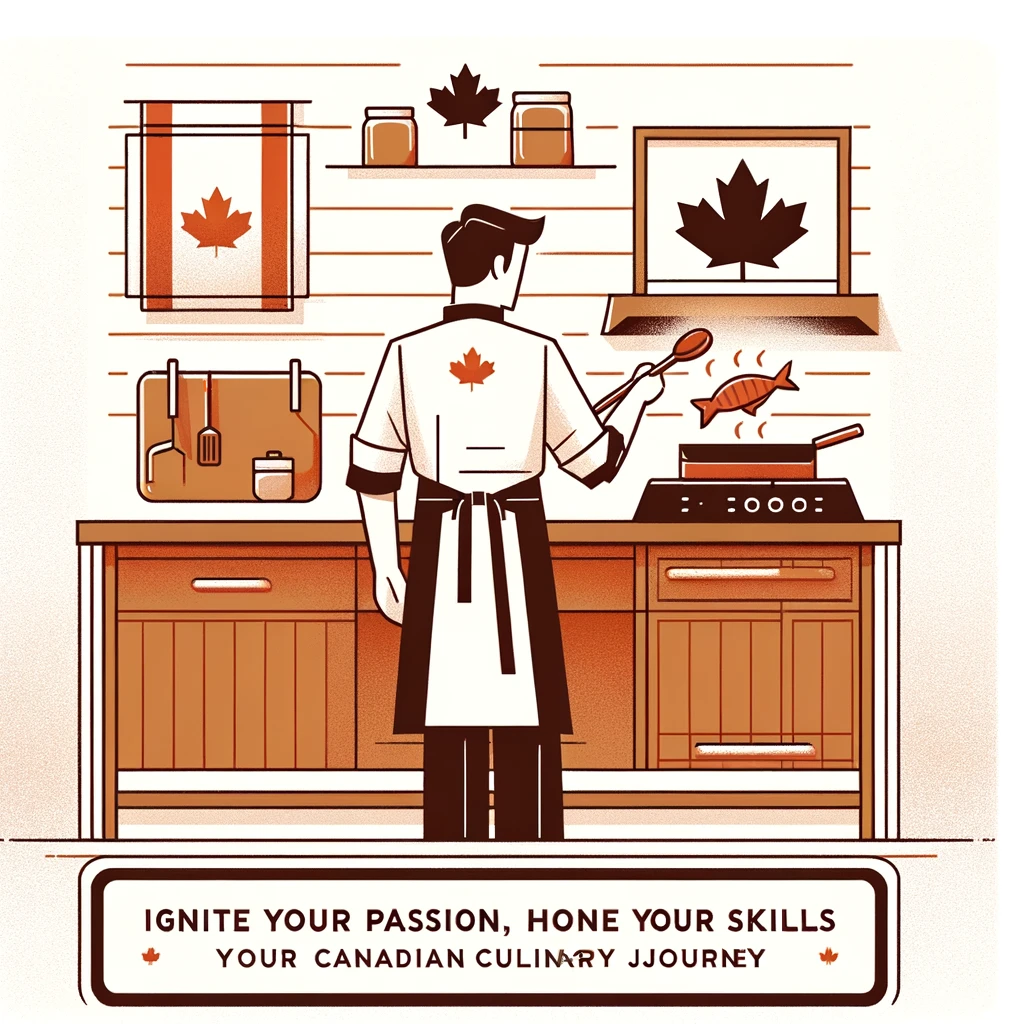Do the sizzling sounds of a busy kitchen and the aroma of delectable dishes awaken your soul? Becoming a chef in Canada can transform your culinary dreams into a fulfilling career, but the path demands dedication, skill, and the right roadmap. This guide equips you with the essential steps to navigate your journey, from immersing yourself in the kitchen to carving your own unique path in the culinary world.
1. Test the Kitchen Waters:
Before diving headfirst into formal training, get a taste of the industry firsthand. Start with entry-level restaurant roles like dishwashing, serving, or running food. These positions offer valuable insight into the fast-paced rhythm of a Canadian kitchen and help you assess your comfort level in this dynamic environment.
2. Education: Your Culinary Compass:
While a culinary school degree can provide a competitive edge, remember, it’s not the only route to success. Explore your options:
- Culinary School: Immerse yourself in the world of culinary arts with programs ranging from one-year certificates to four-year degrees at accredited institutions like:
- George Brown College (Toronto)
- Le Cordon Bleu Ottawa
- Pacific Institute of Culinary Arts (Vancouver)
- Niagara College School of Hospitality, Tourism and Culinary Arts (Ontario)
- Institut de tourisme et d’hôtellerie du Québec (ITHQ)
- Community College: Pursue an associate degree or certificate at a lower cost, gaining valuable skills and potentially transferable credits. Explore options at colleges across Canada.
- Apprenticeship: Learn from experienced chefs while getting paid. Apprenticeships offer a unique blend of practical work and classroom learning, typically lasting 1-3 years. Look for programs through your provincial Ministry of Labour or the Canadian Council of Chefs.
- Other Paths: Consider a food science, nutrition, or management program at a four-year university to gain broader knowledge and leadership skills.
3. Hone Your Skills: Practice Makes Perfect:
Regardless of your chosen path, hands-on experience is crucial. Seek internships or part-time kitchen jobs during your studies. After graduation, actively pursue full-time roles or continue honing your skills through paid apprenticeships.
4. Certification: Elevate Your Culinary Expertise:
While not mandatory, certifications showcase your dedication and expertise. The Canadian Culinary Federation (CCF) offers various certifications, from Certified Working Chef (CWC) to Certified Chef de Cuisine (CCC), empowering you to advance your career.
5. Find Your Culinary Niche:
The Canadian culinary world is vast! Explore diverse specialties like regional cuisine, indigenous gastronomy, or international flavours. Do you envision leading a team as an Executive Chef, catering events, or opening your own restaurant? Chart your course and discover your unique culinary passion.
Ready to Embark on Your Culinary Adventure?
This guide serves as a starting point, but remember, the journey is yours to craft. Embrace the challenges, be persistent in your pursuit of knowledge, and never stop learning. With dedication and passion as your ingredients, you can transform your culinary dreams into a delicious reality in the exciting world of Canadian cuisine!
Additional Tips:
- Consider networking with Canadian chefs and restaurateurs at events or online.
- Explore diverse cuisines and ingredients specific to Canada’s rich culinary tapestry.
- Familiarize yourself with Canadian food safety regulations and licensing requirements.
Remember, this is just the beginning. Get ready to unleash your inner chef and embark on a rewarding adventure in the exciting world of Canadian culinary arts!

